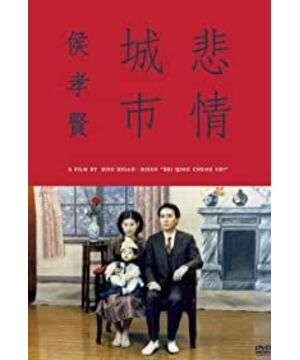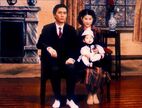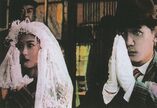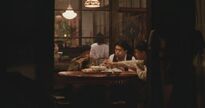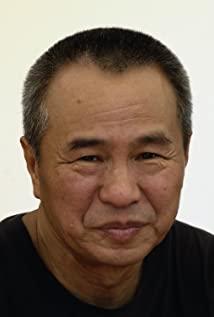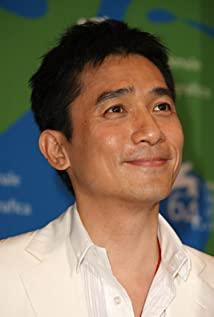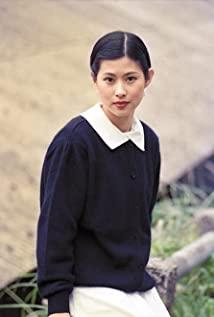Hou Hsiao-hsien once said: I want to photograph the activities of people under the laws of nature.
"City of Sadness" and "Dream of Life" and "Good Men and Good Women" are also called "Taiwan Trilogy". Unlike his earlier "Childhood Memories" and "Love in the Wind and Dust", the personal memory turns to the collective memory of one land. . With the five years before and after the "February 28" incident as the background, it focuses on every fallen leaf, every defeated flower, and every person who struggled but was trampled in the end. Starting from Taiwan's return to the motherland in 1945, it focuses on the fate of the three brothers of the Lin family in Keelung Port. The Lin family maintains their interests and reputation in the wharf business and the brothers in the company. The eldest brother Wen Yong is responsible for the family economy and morality. The second brother was sent to Nanyang to practice medicine during the Japanese occupation period. After returning home from Shanghai, the third brother Wenliang had a seizure. The fourth younger brother, Wen Qing, was deaf in his childhood and was extremely gifted. He made a living by taking pictures. The turbulent years in the film threaten a character. However, Hou Dao can find tranquility and happiness in the gaps in their ill-fated fates. And it can move freely between family affairs, state affairs, and children's love, but it is not obtrusive and superfluous. The heavy weight, although depressing, is often pulled away by the switching of scenes and topics, giving the audience another angle to see suffering.
The heroine Kuan Mei is the narrator of this angle. Much of the resolution of injustice and suffering is accomplished through her diary. You will find that this is not only a deliberate poetic statement, but the survival wisdom of a small life in a chilling situation. Ning Shufen, as a common heroine in that era, took the beauty of restraint into consideration. After receiving the news that her brother tolerance was shot, she was so grieved that she didn't know what to do but did not twitch or howl. Husband Wenqing's hand. His face was full of horror that could no longer be lost.
The insight and taste of the world of people have formed the vividness and fullness of Director Hou's films. When Tolerance and Wenqing talked about current affairs with visiting reporters from the mainland, he used this common scene to build the connection between ordinary people and the upper class. However, just as the audience was immersed in this kind of indignation, the camera turned around and aimed at the corner. The vinyl record player faintly came out with the melody of "Loreley". Wen Qingqing, who could not hear the sound, looked at Kuanmei, spoke the music, and smiled. Talking about the experience of being deaf at the age of eight is as relaxing as telling someone else's story. At that time, Liang Chaowei's eyes were bright, clear and bright, and there was no impurities. Although his elder brother was displaced, he could quietly devote himself to black and white images to find fun. This way of dealing with characters and stories has the wonderful meaning of still water, deep water and calm waves.
Of course, Hou Dao's eyes were not limited to such wonderful ideas. The elder brother Wen Yong and the third younger brother Wen Liang represent these two situations of living in troubled times. Wen Yong dealt with people from other provinces for the port and shipping business, and kept the legacy of the old days. In order to protect Wen Liang and his family's faith, he fought openly and secretly with gangsters. In the end, he took his life for the disabled third brother and the sacrificed men. Wenliang is one of the four brothers who gave up on himself early. He partnered with others to smuggle food and tobacco, and was framed and maimed. The fate and the individual who are running around for a living bring out a sense of heaviness and rivers and lakes, and the pursuit of ideals. The lightness and literati temperament brought out by brothers and sisters Wen Qing and Kuan Mei jointly support the epic capacity and texture of the film. The admirable omniscient perspective is not limited to shooting. Obviously, Director Hou has mobilized his omniscient and omnipotent life experience.
As Director Hou said, it is necessary to express the passage of time and people in a fixed space.
Occasional long shots, constant fixed camera positions, and a lot of medium and long shots are his signature shooting methods. In the long shot, every piece of fog and every cloud in Keelung Port can relieve the style, and can soothe the depression and grievances in the previous episode. This kind of sympathetic perspective overlooking the common people is obviously the original intention of Director Hou. The most fixed seats were placed on the porch of the hospital, silently watching the bloodied wounded and the mentally ill. The voices from Taipei echoed in the air, making the audience sober from the sense of distance from that period of history.
I believe that viewers who have watched "City of Sadness" may remember one of the small allusions, talking about the beauty of cherry blossoms. When the beauty is in full bloom, the petals are colorful, and the posture of leaving branches with the wind is difficult to meet. Such obsessive flower lovers have experienced catastrophe in reality, which is better than polluting the ditch. The seats next to the Lin family's dining table are more leisurely. In the last shot, women are serving meals at the dining table, and there are only half a table of people left at a round table. Even though the Lin family has carried too much social disorder and terror, life has to go on. . Like the blood book hidden in the tie in the prison of Teacher Wu, it warns the children: You have to live with dignity!
History sometimes casts a shadow over everyone's years.
-------------------------------------------------- -------------------------------------------------- -----------------------------
Personal original film review public account loves to watch WeChat: aikanai
movie opens a window, we see life, I also saw myself.
Original movie reviews, independent movie recommendations.
Talk to you about the laughter, tears and heartbreak that belong to you...
View more about A City of Sadness reviews


